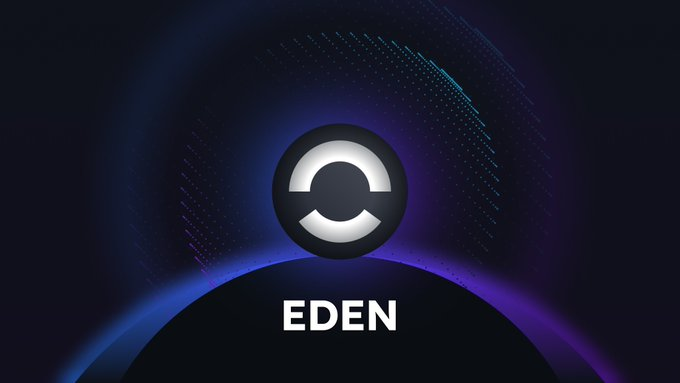
OpenEden is a compliant platform dedicated to bringing real-world assets on-chain. Its core products cover Treasury-bill yields (TBILL), a yield-bearing stablecoin (USDO), and governance and incentives (EDEN), providing a convenient and transparent RWA gateway for institutions and crypto-native users. This Innovation and Tech article analyzes the project across positioning, product suite, yields, and ecosystem dimensions.
Summary: OpenEden brings U.S. Treasury yields on-chain with a compliant architecture, forming a TBILL–USDO–EDEN trio and aiming to become the default gateway for RWA capital.
What is OpenEden?
Founded in 2022, OpenEden positions itself as a bridge that “seamlessly brings RWA on-chain,” connecting TradFi and DeFi via regulated entities. The platform emphasizes “transparency, compliance, and composability,” using a dual-layer architecture of “regulated funds + smart-contract vaults” to hold assets, while continuously expanding developer- and institution-facing APIs/SDKs to reduce integration costs and settlement friction. Its website and recent partnership announcements indicate that OpenEden issues and custodies underlying assets via compliant vehicles in BVI, Bermuda, etc., while front-end rights are expressed through on-chain tokens with verifiable transparency.
Product Matrix: TBILL, USDO, EDEN
TBILL Vault mints TBILL tokens via smart contracts on a 1:1 basis against a portfolio of short-duration U.S. Treasuries and overnight reverse repos, supporting 24/7 mint/redeem and on-chain transparent disclosures. In 2024, TBILL received Moody’s investment-grade “A-bf” rating; in August 2025, OpenEden appointed BNY as investment manager and primary custodian of its flagship U.S. Treasury fund, further enhancing asset safety and compliance backing.
USDO (OpenDollar) is a yield-bearing stablecoin issued by a Bermuda Monetary Authority (BMA)-licensed entity, pegged to 1 USD and distributing Treasury yields to holders per defined rules; launched in February 2025, it grew rapidly.
In August 2025, OpenEden announced the EDEN ecosystem token for governance, incentives, and ecosystem participation, coordinating partner and developer growth under one umbrella.
How does TBILL generate yield?
Holders’ underlying assets accrue interest via short-term U.S. Treasuries and money-market instruments, with yield reflected in NAV. Compared with on-chain lending, yields stem from U.S. Treasury rates and the reverse repo market, featuring risk characteristics closer to traditional money-market products (see U.S. Treasury instrument references).
How does USDO differ from TBILL?
USDO presents as a stablecoin with “$1 face value + auto-distributed yield,” fitting direct settlement and unit-of-account roles in DeFi. TBILL is more akin to a “fund share with 24/7 mint/redeem.” Both reference short-term U.S. Treasuries but differ in presentation, clearing, and integration paths.
Compliance and Transparency: A Fund + Vault Dual-Layer Design
The platform adopts a “regulated offshore fund + on-chain vault” structure: the upper layer is a regulated professional fund in the British Virgin Islands (BVI) or a Bermuda-licensed issuer holding/managing underlying Treasuries and reverse repos; the lower layer comprises on-chain vaults and token contracts for mint/redeem, NAV display, and audit trails. Core parameters (AUM, holdings, fees) are updated via the website dashboard and transparency pages, with on-chain addresses and reports disclosed on a regular basis to reduce information asymmetry and operational risk. On eligibility, some products are open only to professional/accredited investors, with KYC/KYB and sanctions screening enforced per jurisdiction.
Who can participate?
Depending on product and jurisdiction, OpenEden may be available only to professional investors, qualified institutions, or users in specific regions; for instance, third-party RWA data platforms tag TBILL as restricted to “U.S. Accredited / Professional Investor,” with offering documents controlling in the end.

Yield, Fees, and Liquidity: How to evaluate returns
OpenEden product returns track short-term U.S. Treasury rates, typically moving with the Federal Funds target range. TBILL reflects accrued interest via NAV, while USDO uses “redistribution/repricing” mechanisms so holders automatically receive coupon-level yield. Fees include fund/vault management and operating charges, with rates and bases per official disclosures. For liquidity, OpenEden supports 24/7 mint/redeem and is progressively integrating on-chain liquidity venues to reduce slippage and exit costs.
Ecosystem and Integration: From Institutions to DeFi
OpenEden is extending products to Ethereum and L2s and offering standardized APIs for seamless wallet, yield-aggregator, and payment integrations. As partnerships with major financial institutions and custodians (e.g., BNY for investment management and custody) materialize, institutional flows and reconciliation processes become more standardized. On-chain, more protocols are adopting USDO as a “yielding settlement unit” for vaults and pools. External data platforms (such as DeFiLlama and RWA analytics portals) have added relevant pages to enable cross-verification from multiple sources.
How does it coordinate with other RWA products?
USDC/USDT often serve as “cash equivalents,” while USDO/TBILL lean toward “interest-bearing cash.” In treasury management and vault allocations, the former emphasizes transactional convenience, while the latter provides coupon income (see official documentation for positioning differences).
FAQ
Q1: How is OpenEden’s TBILL different from a traditional money-market fund?
Both primarily hold short-term U.S. Treasuries/money-market instruments, but TBILL represents shares as an on-chain token, supports 24/7 mint/redeem, and provides transparent proof of assets; see official materials for portfolio details.
Q2: What are USDO’s compliance and custody arrangements?
USDO is issued by BMA-licensed OpenEden Digital, with reserves primarily in tokenized Treasuries and other high-liquidity assets, using bankruptcy-remote structures and periodic disclosures.
Q3: Why is BNY’s involvement significant?
BNY provides both investment management and primary custody, signaling deeper engagement by traditional large financial institutions in compliant tokenized asset management.
Q4: Can retail individuals participate in TBILL directly?
Eligibility is governed by jurisdiction and offering documents; third-party pages indicate “accredited/professional investor” focus—refer to subscription materials.
Q5: How can I track OpenEden’s TVL and net flows?
Cross-check the OpenEden entry on DeFiLlama with the platform’s transparency dashboards.
Q6: How is TBILL’s yield expressed?
Yield accrues via NAV changes and is affected by U.S. Treasury rates; understanding instrument types and the term structure helps frame expected ranges.
Key Takeaways
OpenEden brings U.S. Treasury yields on-chain via a “regulated fund + on-chain vault” architecture, with a product suite spanning TBILL, USDO, and EDEN.
TBILL has a Moody’s “A-bf” rating and appointed BNY as investment manager and primary custodian, enhancing compliance and safety.
USDO is a BMA-licensed yield-bearing stablecoin suited for direct settlement and pricing in DeFi.
Monitor operational metrics such as AUM/TVL, NAV/APY, mint/redeem net flows, and number of integrated protocols (cross-verify with DeFiLlama).





